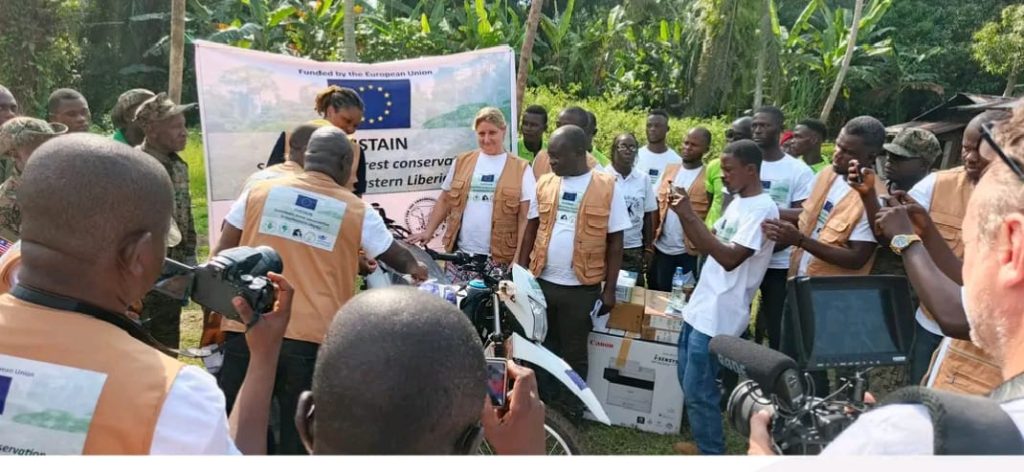Liberia’s Community Forestry Revolution: Empowering Communities and Ensuring Sustainable Forest Management
Liberia, a nation richly endowed with diverse forest ecosystems, is undergoing a transformative shift in its approach to forest management. The National Union of Community Forestry Development Committee (NUCFDC), a grassroots organization dedicated to empowering forest communities, is spearheading this change. The NUCFDC, established in 2009, is working tirelessly to expand its sustainable forest management initiatives, aiming to encompass eleven of the country’s fifteen counties. This expansion represents a significant stride toward ensuring the long-term health of Liberia’s forests while simultaneously uplifting the socio-economic well-being of communities that reside within and around these vital natural resources.
At the heart of the NUCFDC’s mission lies the principle of community-based forest management. This approach recognizes the intimate connection between local communities and their surrounding forests, acknowledging their traditional knowledge and their crucial role as stewards of these ecosystems. By empowering these communities to actively participate in decision-making processes related to forest management, the NUCFDC is fostering a sense of ownership and responsibility, ensuring that forest resources are utilized sustainably for the benefit of both present and future generations. This shift away from centralized control towards local management is fostering a more equitable and effective approach to conservation.
The NUCFDC’s efforts extend beyond mere resource management; they aim to holistically address the needs of forest communities. The organization is actively developing innovative community projects, focusing on providing essential services such as safe drinking water, sustainable electricity, and investing in sustainable agriculture. These initiatives are crucial for improving the livelihoods of residents, creating economic opportunities, and fostering self-reliance within these communities. These integrated development projects not only improve the quality of life but also reduce pressure on forest resources by providing alternative income sources.
A cornerstone of the NUCFDC’s success is its advocacy work, amplified by increasing representation of communities in concession areas at both national and international forums. By providing a platform for these communities to voice their concerns and needs, the NUCFDC ensures that the benefits derived from forestry activities are equitably shared. This includes holding both the central government and corporations accountable for their commitments to these communities. This collaborative approach is fostering a more transparent and participatory governance structure within the forestry sector.
The Liberian government has demonstrated an unprecedented level of support for the NUCFDC’s initiatives. The allocation of 92% of the forestry sector budget in the 2024 fiscal year signifies a historic commitment to community-based forestry. This unprecedented financial backing highlights the government’s recognition of the vital role played by the NUCFDC in achieving national sustainable development goals. This investment is not just financial; it represents a deep investment in the future of Liberia’s forests and the well-being of its people.
The NUCFDC’s achievements underscore the significant impact that community-based organizations can have in driving sustainable development. By prioritizing local empowerment, fostering participatory governance, and implementing integrated development projects, the NUCFDC is transforming Liberia’s forestry sector. The organization’s ongoing efforts are not merely about protecting trees; they are about empowering communities, fostering sustainable livelihoods, and building a more resilient and prosperous future for Liberia. This model of community-led conservation offers valuable lessons for other nations grappling with the challenge of balancing economic development with environmental protection. The NUCFDC’s success serves as a testament to the power of local action and the importance of investing in the well-being of communities as a cornerstone of sustainable development. Their work provides a compelling example of how community-driven initiatives can create a positive ripple effect, benefiting not only local populations but also contributing to the nation’s overall economic and environmental health.


